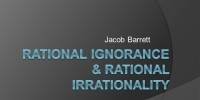Cardiovascular psychology, also known as heart health psychology or cardiovascular psychology, is a subfield of health psychology that focuses on the psychological aspects of heart disease and cardiovascular health. It is a branch of health psychology that focuses on the primary and secondary prevention of heart disease by incorporating strategies to address emotional and behavioral barriers to lifestyle changes (e.g., smoking cessation), as well as on improving recovery in cardiac patients by providing patients with tools (e.g., stress management and psychotherapy) to cope with the life and physical changes associated with their disease.
Cardiac psychologists can assist cardiac patients throughout their lives, including prevention, pre-surgery, post-surgery, and rehabilitation, with a focus on achieving optimal quality of life outcomes. This interdisciplinary field combines psychology, medicine, and cardiology principles to understand and address the psychological factors that influence heart health, disease prevention, and cardiovascular disease management. Cardiac psychology encompasses both research and clinical practice.
Here are some key aspects of cardiac psychology:
- Psychosocial Factors in Cardiovascular Health: Cardiac psychologists study the relationship between psychological factors and cardiovascular health. This includes examining how stress, anxiety, depression, and other emotional factors may contribute to the development and progression of heart disease.
- Behavioral Interventions: Cardiac psychologists often work with individuals to help them adopt healthier lifestyles and behaviors. This may involve developing strategies to quit smoking, improve diet and exercise habits, and manage stress effectively.
- Patient Education and Counseling: Cardiac psychologists provide education and counseling to individuals with heart disease, helping them understand their condition, cope with the emotional impact of their diagnosis, and adhere to medical recommendations.
- Rehabilitation Programs: A psychological component is frequently included in cardiac rehabilitation programs to address the emotional and behavioral aspects of recovery. Individual or group therapy sessions focusing on coping skills, stress management, and lifestyle changes may be included.
- Support for Caregivers: Cardiac psychologists may also offer support and counseling to family members and caregivers of people suffering from heart disease. Heart disease has an impact that extends beyond the individual, affecting the well-being of those around them.
In conclusion, cardiac psychology is critical in addressing the psychological aspects of heart health, assisting individuals in adopting healthier behaviors, and promoting emotional well-being throughout the cardiovascular disease continuum.
















